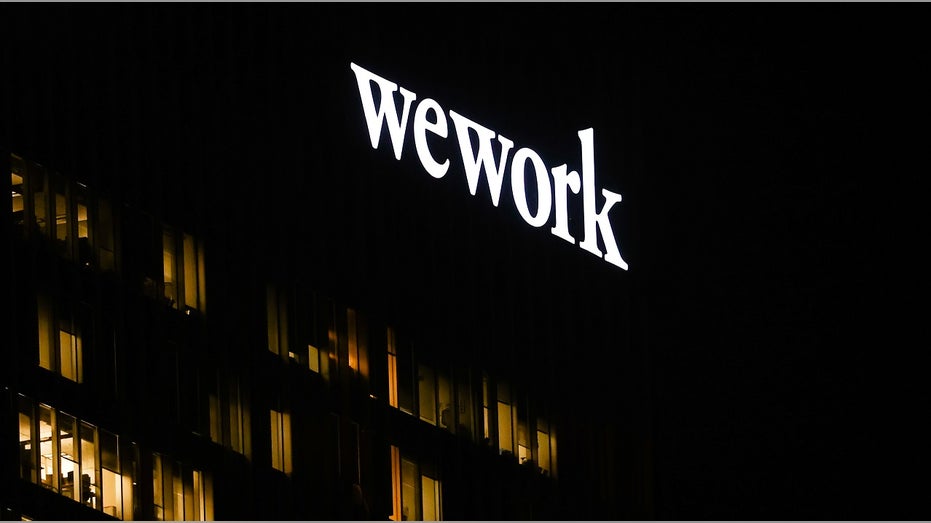
Thor Equities CEO Joe Sitt discusses what a sharp drop in commercial real estate could mean for banks on Varney & Co.
WeWork filed for Chapter 11 bankruptcy protection on Monday, ending months of speculation that the office-sharing company was on the edge of collapse and marking a spectacular fall for a firm once valued at nearly $50 billion.
The news signals the end of what has been the company’s yearslong, tumultuous, cash-burning quest to make its luxe workplace subleasing model work.
“Now is the time for us to pull the future forward by aggressively addressing our legacy leases and dramatically improving our balance sheet,” WeWork CEO David Tolley said in a statement. “We defined a new category of working, and these steps will enable us to remain the global leader in flexible work.”

The office-sharing company WeWork warned this week it could be headed for collapse. (Jakub Porzycki/NurPhoto via Getty Images / Getty Images)
WeWork was founded in 2010, and its “space-as-a-service” pitch proved alluring to investors and customers alike.
The company, based in New York, drew intrigue for its innovative approach to workspaces for small firms and grew to have a global footprint, even landing partnerships with several major corporations, including Salesforce and Microsoft.
DISNEY BATTLE WITH RON DESANTIS ONE OF INVESTORS’ TOP ISSUES
By the time the company first tried to go public in 2019, it was valued at $47 billion, but that effort was scrapped after investors balked at its high debt levels, massive losses and how quickly it was burning through cash.
Investors also became fed up with the exorbitant spending and erratic behavior from co-founder and then-CEO Adam Neumann, who was later ousted but was handed an enormous golden parachute to leave.

Co-founder and former CEO of WeWork Adam Neumann’s enormous golden parachute drew outrage from some WeWork investors and employees. (Noam Galai/Getty Images for TechCrunch / Getty Images)
WeWork’s major backer, Japanese conglomerate SoftBank, took control of the company with a bailout and offered Neumann a nearly $1.7 billion payout that left him with significant stock control.
WeWork’s new chairman following Neumann’s departure, Marcelo Claure, defended the decision, saying, “There’s a level of gratefulness that we’re going to have for Adam because he’s the one who built this business,” and emphasizing the company would now face “zero risk” of bankruptcy. Claure left SoftBank in 2022.
YELLOW CORP. FACES FULL LIQUIDATION SALE; BIDDERS EMERGE: REPORT
SoftBank later sought to claw back its offer to Neumann, who then sued, resulting in the renegotiation of the deal that was ultimately settled to make way for WeWork’s public debut.
The firm finally became a publicly traded company in 2021 via a special purpose acquisition company deal, but was never able to turn a profit.

The work environment of WeWork, a U.S. co-working space provider, in Shanghai on March 2, 2023. WeWork entered China in 2016. (CFOTO/Future Publishing via Getty Images / Getty Images)
| Ticker | Security | Last | Change | Change % |
|---|---|---|---|---|
| WE | WEWORK | 0.84 | -0.27 | -24.73% |
GET FOX BUSINESS ON THE GO BY CLICKING HERE
Reuters columnist Robert Cyran wrote in August that WeWork “was built largely on hype and being valued more like technology than real estate.” He said the company was poorly managed, and he was critical of its attempt at “multitasking on everything from schools to wave pools” rather than taking a more conservative approach to subleasing.
FOX Business’ Daniella Genovese and Reuters contributed to this report.







